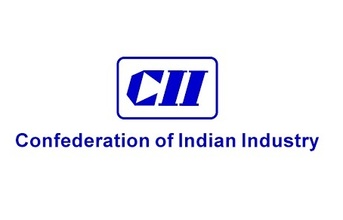
CII has emphasized on the need for ensuring smooth supply of essential goods and continuity and sustainability of businesses during this challenging time.
As the nation battles the outbreak of the novel Coronavirus, going for lockdown for 3 weeks, CII has emphasized on the need for ensuring smooth supply of essential goods and continuity and sustainability of businesses during this challenging time. While the government is continuously announcing measures to reduce the stress from lockdown and ensure continuing flow of essential goods and services, CII has identified an exhaustive list of measures that need to be introduced on urgent basis.
"It is crucial to ensure that the lockdown of the country is as painless as possible. We acknowledge a series of landmark initiatives being introduced by the government on continuous basis to reduce the pain of society and the economy. We appreciate various measures undertaken by the government to facilitate sustainability and continuity of businesses in the country. CII shall continue supporting the government in its initiatives by providing regular feedback from the industry," stated Dr Chandrajit Banerjee, Director General, CII.
In the latest note to the government, CII has made a range of suggestions for easing the stress of the industry and economy in the current testing times. Some of the key suggestions include the following.
One, while the government has permitted the suppliers of essential commodities to operate during the lockdown period, transportation bottlenecks of varies nature have led to serious challenges across states. We must work in the direction of addressing these bottlenecks urgently, which would include measures like prioritizing trucks carrying essential goods for fast clearances at check-posts, reducing multiple checks and stoppages by police, ensuring provision of food and water for drivers on the route, and relaxing payment of toll tax during the lockdown period.
Two, lack of staff of various stakeholders, including customs, CFS, logistics etc. in the trading eco-system has resulted in inordinate delay in delivery of essential items and likewise delay in export of essential items. Customs, Port Terminals, CFS are facing difficulty in clearances of even essential commodity due to lack of availability drivers, forklift/top lifter crane/kalmar operators, labor etc. Staff under this category need to be facilitated for reporting with necessary precautions. There is also need to waive off the late fees on delayed filing of Bills of Entry, demurrage and detention charges on the traders. The ICEGATE should also be updated not to calculate late filing fees upto 30th April.
Three, all exports shipments of essential and emergency commodity, which are self-sealed by E-Sealing provision of the Customs, should be considered as direct Let Export Order and should be allowed Direct Port Entry instead of being routed through parking plaza with a lot of human interaction. Trade financing has also become an issue as physical submission of documents to bank is currently difficult. To overcome this, businesses may be allowed to submit the necessary documents online in a secured manner.
Four, the government may consider duty exemption for items being imported for fighting the COVID-19 pandemic, like protective body gear, isolation chambers, ventilators, testing kits etc.
Five, while essential commodities attract a penalty, if order fulfilment is not done in stipulated time to government bodies, no Penalty should be levied for the time being, as the industry is facing severe crunch of Manpower, Raw Material and packaging materials.
Six, the government may consider including soaps, handwash, sanitizers and packaging industry as ‘Essential Commodities' so that their production and supplies continue. Hand Sanitisers are unaffordable for the common people. Reduction of GST from the current level of 18% to nil would help in making if more affordable. Also, fumigation / pesticide service providers should be included in the list of essential goods so as to help the private sector to share the responsibility of sanitization with the government.
Seven, many educational and higher centres of learning are developing medical equipment and products such as a low-cost test kit for the virus and high efficacy sanitizer. They should be encouraged to transferring the technology to the industry on a royalty basis.
Eight, with the financial year coming to close, it is important to allow a fraction of the staff in banking and financial services to work onsite to complete international client obligations like book closure and regulation filing between last week of March and the first ten days of April 2020.
Nine, MSMEs in this challenging time need to be treated with special care. CII recommends that interest rates for their borrowing should be reduced by at least 2% for next one year. Also, essential commodity manufacturers SMEs should be allowed 20%-30% additional working capital for 3-4-month, without the need of additional collaterals or securities. State/Central government should speedily clear the pending dues on SMES engaged in provision of essential commodities.
Ten, there is ambiguity in interpretation of ‘Essential goods and Services' and their supply chain across states. The government may consider having a uniform definition of ‘essential goods and services' across all states to include IT/ITES/ Telecom/Banking, financial services, among others. Further, with view to cut time in seeking approvals and reduce burden of the authorities, companies in this challenging time should be allowed to self-certify for undertaking production, transport, distribution etc of essential goods and services.
"We are confident that these recommendations would prove to be helpful in minimizing the pains of the lockdown. We remain committed to work with the government and provide our regular feedback in this time of COVID-19 crisis, which is impacting one and all," stated Banerjee.
END


























